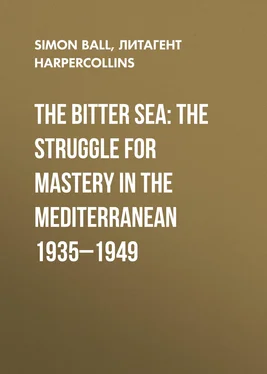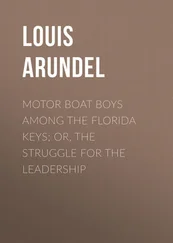1 ...6 7 8 10 11 12 ...30 The Italians, on the other hand, were more than willing to provide the Mufti with ‘millions’. Both the Italians and the insurgents got what they wanted. British troops were transferred from the Egyptian-Libyan border to Palestine, where they struggled to deal with terrorism. At last it seemed that money and violence would close down Haifa. In extremis, the British Army acted decisively. It sent troops into Haifa to protect those who kept working. But British success in Haifa provoked even more violence. Insurgents took to the countryside. If they could not close the ports they would sabotage the economy inland. In the towns the paramilitaries forced shops to close, preventing what arrived at the ports from being sold. Foreign fighters arrived from around the Arab world. Those with military training were able to deploy heavier weapons such as machine guns, making the bands even more deadly.
The British response was hobbled by disagreement over the nature of the revolt. Sir John Dill, the officer dispatched from Britain to deal with the insurgents, argued that the surest and most effective way of crippling the uprising was to decapitate it. He wanted to eliminate the Mufti. The High Commissioner in Palestine, Sir Arthur Wauchope, however, remained the Mufti’s dupe. Wauchope’s own desire that Palestine should become a peaceful, multi-racial, multi-religious society, led him astray. 28 The effect, one of his senior police officials remarked, was a policy of glossing things over’. 29 In the autumn of 1936 London finally agreed to overrule Wauchope. He was ordered to extirpate the leaders of the revolt. Despite these orders Wauchope remained determined to subvert the ‘hard policy’. His first response was to wash his hands of his responsibilities, for he must remain ‘the Kindly Father’ of the Arabs. As the day of martial law drew near, he warned the Arab Higher Committee that he would soon be unable to protect them. The Mufti heeded Wauchope’s warning. Just before the Army moved in to arrest the leaders of the revolt, the Arab Higher Committee decreed that they had won and the strike would end. With his power intact the High Commissioner was able to override any plans to hunt down the insurgents. Foreign fighters merely crossed the border into Syria whilst home-grown terrorists returned unmolested to their day jobs. As Dill bitterly observed, a great proportion of the fighting power of the British army had been deployed to achieve a paper victory 30
By the time Mussolini unsheathed the sword of Islam in Tripoli, the Mufti was planning an even greater uprising in Palestine. His Italian lire funded a meeting of militants at Bludan, well recorded since the ‘Colonel Race’ of Syria, Colonel MacKereth, managed to sneak in an agent disguised as an ice-seller. 31 Compromised, the Mufti fled. In the first of the escapes that added glamour to his sinister fame, he climbed down the walls of his Jerusalem mosque, sped to the Mediterranean coast by car and boarded a boat for Lebanon. Once safely in Beirut he declared Jihad against the British. It was launched on 26 September 1937. 32 In November 1937, when the British decided to send more troops to the eastern Mediterranean, the reinforcements went to Palestine. Far from deterring Mussolini, the so-called ‘Middle East strategic reserve’ was tied down by his Islamic allies in emergency counter-insurgency Twenty thousand troops, including eighteen infantry battalions, were deployed in the country 33 Mussolini’s jihad even won the admiration of Hitler, who had previously dismissed the Arabs as lacquered apes. 34
Ciano, famously, dismissed the efficacy of political mezzi insidiosi. ‘For years,’ he moaned to the German ambassador in Rome, ‘he had maintained constant relations with the Grand Mufti, of which his secret fund could tell a tale.’ Sadly, Ciano lamented, ‘the return of his gift of millions had not been exactly great’. Militarily, all he had got for his money was a few bands of Muslim insurgents willing to sabotage the oil pipeline that ran from northern Iraq to the Mediterranean coast at Haifa. But Ciano was speaking after Italy had declared war on Britain. Subversion was then of little importance to immediate military campaigns. 35 As Otto von Hentig, the premier German expert on oriental subversion, pointed out, the erosion of British power in the Mediterranean would take years rather than months. In Egypt, Ali Maher was Prime Minister, although he was too wily to twit British power openly. With the greatest difficulty the British had been able to smother the second intifada. 36 It was only in July 1939 that Britain, at last, managed to transfer troops from Palestine to the Egyptian-Libyan frontier. A remarkable amount had been achieved in only four years. Mussolini had acted as a beacon of hope for all those who hated the British. The tangible links between Islamic militancy and Fascism were actually less important than a vision of the future. The Italians had shown that British rule was not inescapable. ‘The old impression of invulnerability has gone,’ concluded one intelligence report, ‘and while there are many who believe that England can still hold her own in the Mediterranean, there are just as many who question her ability to do so.’ 37 It was possible to plan, and fight for, the illiberal, undemocratic bright horizon. 38
In the spring of 1939 the great Mediterranean navies had a burst of enthusiasm for killing each other. The Royal Navy found release from its own problems in fantasizing about giving the despised ‘Itiy’ a good drubbing. 1 The Regia Marina reached the height of its fervour for Fascist manliness. The most enthusiastic champion of a Mediterranean war was, however, the French Marine and in particular its charismatic leader Jean-François Darlan. Darlan had furiously politicked his way to the top. He cultivated an image as a ‘liberal’ ready to bring the navy out of the nineteenth century and into the twentieth. His fellow admirals did not altogether trust him. Most of them respected or feared his skills. They knew he had the ear of their political masters. They realized that Darlan had sedulously placed his own allies in positions of influence during his rise to the top.
The royal republicans of the Marine understood that France’s best guarantee against Italian belligerence was the dominant power of Britain in the Mediterranean. This knowledge did not make them happy. France should have had a great role in the Mediterranean. She had a powerful fleet. That fleet had modern bases to both the north and the south: Toulon in metropolitan France, Oran in Algeria, Bizerta in Tunisia. Bizerta was the ‘key naval base of the Middle Mediterranean’, commanding the narrow seas between Sicily and Tunisia. Bizerta struck one British observer in the spring of 1939 as ‘the most magnificent harbour on the whole African coast’. The bay was large and deep enough to accommodate the entire French fleet. Unlike the main British naval base in the central Mediterranean, Malta, its Tunisian hinterland could provision and support that fleet even in time of war. 2
Unfortunately, however many great warships and magnificent facilities they possessed, at root the task of the French navy was to transport the French army from North Africa to southern France. This was hardly the glorious sea-spanning mission of a true battlefleet. But there was a golden scenario. If the Royal Navy was to fight Italy, it would seek an ally. French strength in the western Mediterranean would be indispensable; but so too would be France’s assets in the eastern Mediterranean. The British would invite the French to sail, not just north and south on their unglamorous supply route, but east to glory. The odds in a naval war between France and Italy were too close to take the risk; the odds in a Mediterranean conflict between a Franco-British alliance and Italy were quite excellent. At the end of the struggle the French navy would be victorious, it would have achieved gloire. Most importantly of all, the Marine would have inserted itself into the eastern Mediterranean whence it was doubtful whether its erstwhile allies could dislodge it. The thought of the British fighting France’s war to their own disadvantage was an appealing opportunity.
Читать дальше












